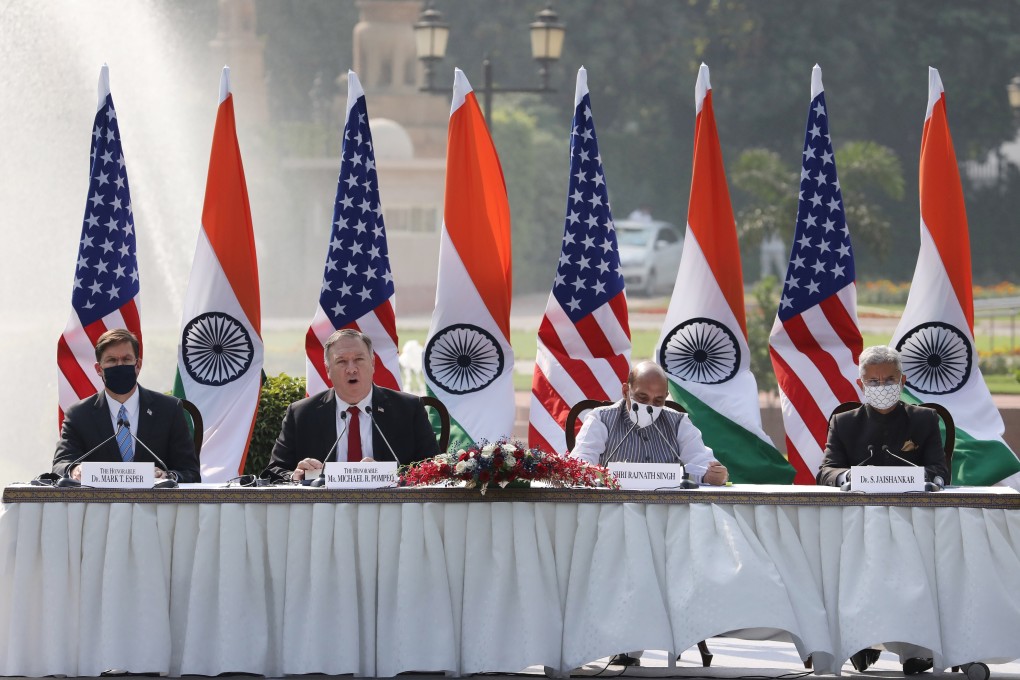Opinion | US pivot away from Indo-Pacific strategy a worrying sign for India’s future
- India’s challenge will be to keep Biden committed to the Indo-Pacific, which means it must make itself more relevant to the interests of the US and its allies
- Delhi should consider a more proactive policy of siding with Washington in the South China Sea and vocally oppose Chinese militarisation in that region

When Joe Biden won the US presidential election, many Asian observers were worried about how he would react to China’s rise. Now, analysts are already in a flutter – over words and semantics, if nothing else.
Meanwhile, Biden also appears to be softening some of the language used by the Trump administration that proved controversial in Beijing. The most notable is the term “Indo-Pacific”, which had begun to replace “Asia-Pacific” in American diplomatic talk. The idea was to convey that US foreign policy should see the Indian Ocean, South China Sea and Pacific Ocean as one contiguous strategic region of Chinese influence.
The Trump administration had seen its expansive definition of the Indo-Pacific as a way to include India in its efforts to counter Chinese influence. As analyst Jeff Smith recently wrote, though, Biden has started reverting back to Asia-Pacific in his public statements.

02:08
US President-elect Joe Biden’s possible Indian relatives spark genealogical frenzy
In remarks that followed his piece in The Atlantic, for instance, Biden talked about “rebuilding and modernising our alliances, from the Asia-Pacific to Europe and around the world”. In its 2020 platform, the Democratic Party also adopted the same term.

